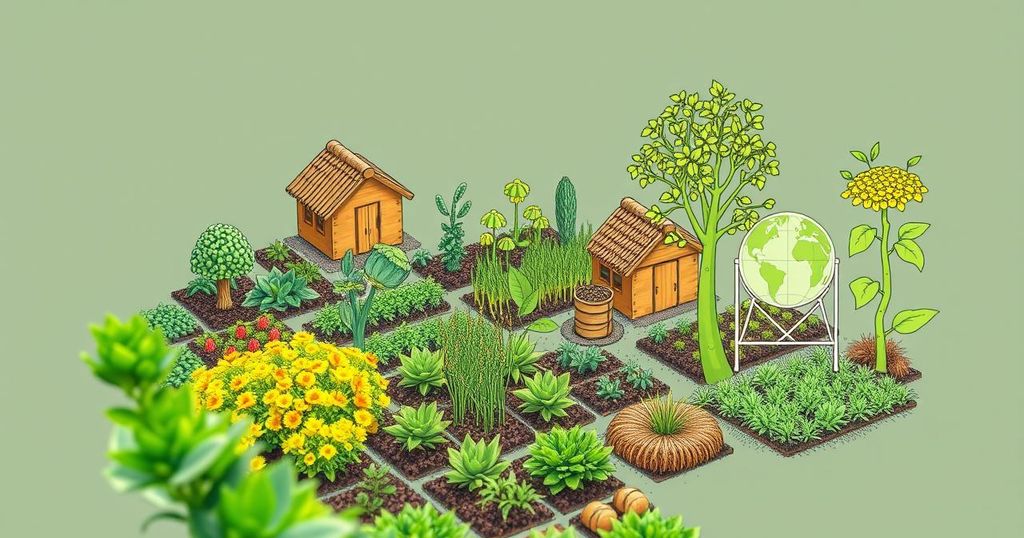Global agricultural experts emphasize the need for an innovation-driven green transition in the agri-food system to mitigate climate change impacts. Discussions at the World Agri-Food Innovation Conference in Beijing highlighted significant challenges in food production due to global warming, while China was recognized for its ambitious food production goals and its vital role in promoting food security.
A coalition of global agricultural experts has advocated for an innovation-driven green transition in the agri-food sector to address carbon emissions and combat climate change’s effects on food production. This call emanated from discussions at the 2024 World Agri-Food Innovation Conference in Beijing, hosted by China Agricultural University. Sun Qixin, the university’s president, emphasized that climate change could lead to a 6 to 8 percent decline in food output for every 1 °C rise in global temperatures, unless innovative technologies are adopted. Although some regions may experience short-term benefits from warmer climates, unpredictable weather patterns severely affect agricultural production across Asia, Africa, and South America. The experts highlighted the necessity of investing in research and technological advancements to facilitate a substantial reduction in agricultural inputs, such as fertilizers, without compromising output. Additionally, Fu Wenge, a professor at China Agricultural University, noted that the green transition need not always rely on groundbreaking scientific discoveries; practical reforms in management could yield significant benefits. He cited the Science and Technology Backyard project, encouraging student engagements with smallholder farmers to promote sustainable practices, an approach also implemented in Africa. Ismahane Elouafi, executive managing director at CGIAR, stressed that innovation at technological, policy, and institutional levels is essential for transforming the agricultural system in light of escalating climate challenges. Patrick Caron, vice-chair of the CGIAR system board, contextualized food production increases within the necessity to mitigate climate change impacts. China’s ambition to enhance its food production capacity to 700 million metric tons by 2030 presents a potential model for other nations. Elouafi praised China for its notable efforts in increasing agricultural productivity while reducing poverty and hunger. Furthermore, on World Food Day, Foreign Ministry spokesperson Mao Ning reiterated China’s commitment to global food security, citing its significant contributions under the FAO’s South-South Cooperation Programme. China remains poised to enhance collaboration to alleviate hunger worldwide.
The text underscores the pressing need for a green transition in the agri-food sector in response to global warming and its detrimental effects on food production. It highlights the discussions observed during the 2024 World Agri-Food Innovation Conference, featuring insights from leading experts and authorities in agricultural research and innovation. The dialogue encompasses various strategies, includes technological innovations, and emphasizes the role of collaborative efforts in addressing the urgent climate crisis facing agriculture worldwide. Furthermore, it draws attention to China’s proactive measures and its influence in promoting food security on a global scale.
In summary, the call for a green transition in the agri-food sector signifies a critical turning point in addressing the adverse impacts of climate change on food security. Experts advocate for the integration of innovative technologies and sustainable practices to enhance food production while reducing carbon emissions. China serves as a beacon of hope, illustrating how focused efforts in agricultural innovation can contribute to resolving global food challenges. Collaboration and commitment from all stakeholders will be pivotal in achieving these aims.
Original Source: global.chinadaily.com.cn






